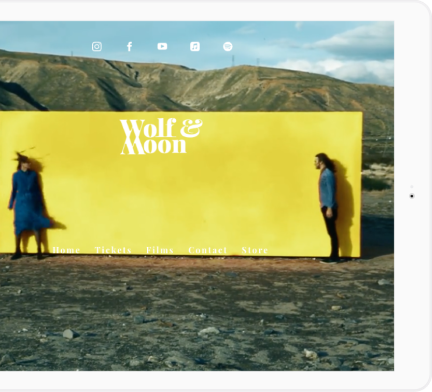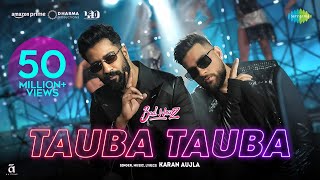When exploring your musical identity, there are a lot of questions you need to ask yourself. What instrumentation do you love? What kind of artist do you want to be? What genre do you fit into?
A lot of times we think we know the answers to these questions early on. But as we explore our careers as musical artists, things can change and develop in unexpected ways. It’s a beautiful part of art, growth, and the human condition. The only problem with these changes are the walls of the boxes we tend to put ourselves in. So how do we break out of those?
Well, if you’re feeling the itch to re-explore your creativity in a new way, maybe you’d think about switching up what genre of music you make. While that can either be a completely re-inspiring or daunting task, if you decide you’re ready to take the plunge, we’ll be here to make it just a little bit easier on you.
Whether you’re making the switch because you’re ready to break out of the box we discussed, or because you’re ready to try something new, we’ve got you.
Here are 6 tips on writing in a new genre.
1. Listen to that genre
This may sound incredibly obvious, but when looking to write in a new genre, the first tip that will help you is listening to music in that genre. Chances are, you’re already doing this if this is the genre you’ve decided to switch to. However, it’s important to note that this doesn’t mean cutting out every other kind of music you consume, or completely devoting all of your listening hours to this one sound. It means you should mix this genre in with the music you already love to listen to.
When writing in a new genre, the last thing you want is to sound ‘cookie cutter’, and like everything else. Just because you switch genres does not mean you switch everything about yourself (unless you do, but that’s a personal choice). Really, you should be exploring what the sound feels like, and what draws you to it, that might work with the sound that makes your music uniquely you.
The only way to figure that out is by listening, consuming, and enjoying your new genre of choice.
So, listen away. Explore the genre, and enjoy the musical mixing pot to come.
2. Learn new instrumentation styles
I’m sure many of you can tell the difference between a folk guitar and a heavy metal guitar. Why? The playing styles are inherently different. Folk guitars are usually classical or acoustic guitars. Heavy metal is usually electric. Folk is usually finger-plucked and softer than heavy metals power chords.
Now, obviously those examples are two extremes. But every musical genre has some sort of instrumentation, or instrumentation style, that sets it apart. Learning how to play in that style can really help you adapt to a new genre. However you decide to test this theory out, take your time and have fun.
Maybe you’ll end up making up a playing style all of your own as you do it.

Build a stunning website for your music
Bandzoogle gives you all the tools you need to create your own unique band website, including responsive templates and commission-free selling tools.BUILD YOUR WEBSITE
3. Copy, learn, adapt
Earlier we talked about keeping your unique voice in mind while listening to the genre you want to emulate. However, sometimes the best way to learn is to copy. Practice doing covers of your favorite artist’s songs in this genre. Copy songs they’ve already done in this genre. What do you think they do well? Which elements of their music do you love?
Learning from the masters of a craft is a sure way to get you started in the right direction. However, after you’ve done so, your own songwriting begins. Which means that unique voice we talked about before should come back into play, and the skills you’ve learned along the way should help you combine all you learned from copying, in a new, authentic-to-you way.
4. Write!!!!
So we’ve copied and adapted, put in our listening hours, and even played around with some new instrumentation styles. Now you’re ready to pick up a pen and write.
It may seem a bit redundant for an article giving you tips on writing to tell you to write, but the reality of the situation is, to get good at anything you need to put in your ten thousand hours first. And while that doesn’t necessarily mean you need to put in ten thousand hours into each genre you learn, you do have to put it into how often you write.
You see, the more you write the easier it is for you to figure out which applications of tools in your writer’s toolbox works best for any style, form, or song. You’ll also have a better sense of what you, as a writer, enjoy.
Whether you’re already ten thousand hours into your practice or not, there’s a couple great tips for starting to branch out and play around with:
Play with extremes
Earlier in the article we talked about the ‘cookie cutter’s’ of genre and how your unique voice should still shine through. While that is true, when you first start writing in a new genre, if you’re having trouble grasping it, try writing to that classic ‘cookie cutter’ extreme. Get a feel for what works in the genre, even if it doesn’t feel authentic to you. You can always dial it back after you feel like you’ve mastered the writing skills of what makes a song ‘fit’ in its genre box.
Write for pitch
Try writing a pitch song for one of the artists you admire in this new genre. Think about what dialect and slang they would include. Think about themes and topics they would sing about. Re-work the piece until it feels like it would really work for them.
Sometimes all it takes is removing yourself from the equation to get out of your own way when exploring something creatively unfamiliar. If you end up finishing the song and decide you’ve written something you absolutely love, and want to keep it for yourself, you can.
4. Use a pre-made loop
Some writers may find it’s easier to take away the guesswork of instrumentation and focus on lyrics and melody when writing something new. Some writers prefer the opposite, and really need to take their time with the lyrics and melody as well.
Either way, finding a pre-made loop you can write over can really help you dial in to the melody and lyric writing process. And after you’re happy with the melody and lyrics, you can always go back in and create a new track, or use some of your new instrumentation skills to make the song entirely of your own creation.
Keep in mind, these three ideas are just examples of practices that can help you as you’re starting to write in this new genre. Try a few things on this list, and off, and see what works for you.
5. Find where you fit in
We’ve talked a couple times about applying your own musical voice to a genre. However, figuring out where you fit within a genre can be its own beast. Usually, when writing in a new genre, I would say this tip should come last. After all, sometimes trying to force yourself to fit in the lines of a genre label can be a bit puzzle-like. Either you match instantaneously in an almost serendipitous way, or you don’t and no matter how hard you try, you blur the lines of the box.
Both occurrences are perfectly natural and should happen to you when you’re exploring new genres and your musical-world. Even if your puzzle piece doesn’t fit quite right, you’ll find a way to blend it into your musical world in your own musical way. It’s all trial and error (which we’ll talk about next).
So after you’ve tried writing in this genre, and you start to feel comfortable with it, that’s when you should investigate where you fit within it. Are you a pioneer of the genre? Are you mixing things up? Do you have one foot in this world and one in another? Or perhaps you prefer the classical, authentic roots of the genre – which is just fine too.
Remember, genre is a label for a type of music, not a restraint or a rule on how to do things.
6. Try, fail, and try again
This tip is a bit self-explanatory. With any and every new creative practice, there is going to be failure. Failure is the best way to learn, no matter what it is you’re trying to achieve. After all, no one is perfect on their first attempt at anything. There will always be things you learn through time and effort. So don’t be afraid to fail. That’s how you grow.
In conclusion, writing in a new genre can be an extremely fulfilling practice. It can help you re-discover, or perhaps even discover yourself musically for the first time. As with all art forms, it’s important to remember that we’re here to give you tips. In art, there are no rules, just tool-boxes to help you reach your goals. Take what serves you, and leave what doesn’t. But most importantly, make sure you’re having fun.
Did we miss any cool tips or tricks that have helped you? Comment below. We’re always looking for new ways to help each other. Enjoy, and as always, happy writing.



